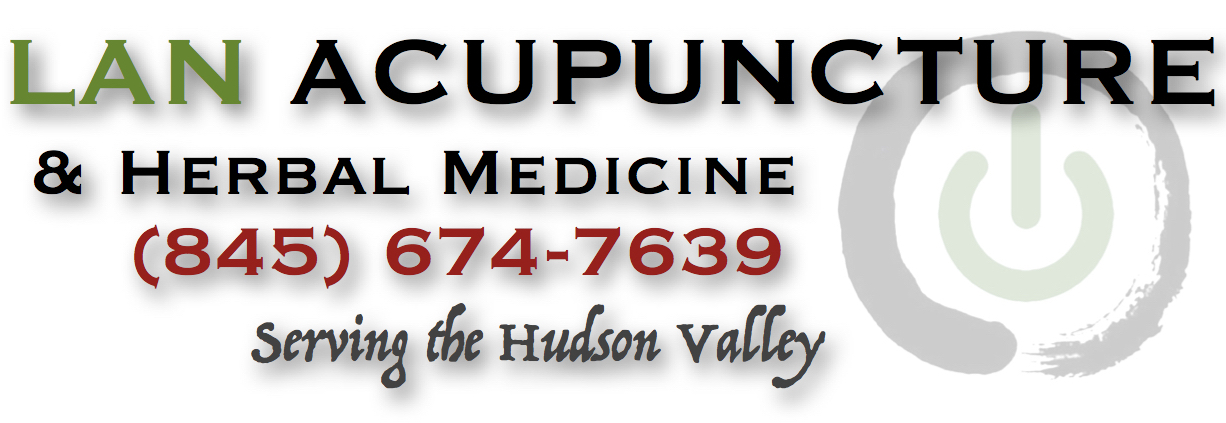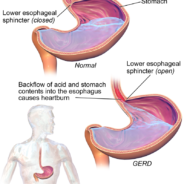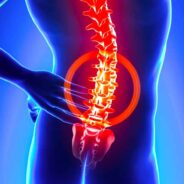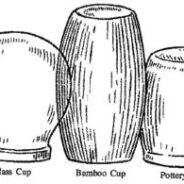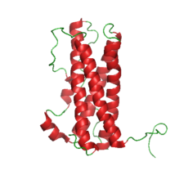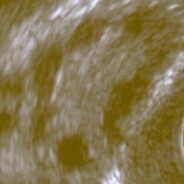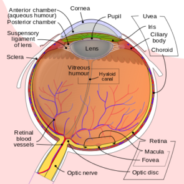How does acupuncture work from a biomedical perspective?
As methods of scientific inquiry have progressed, the mechanisms of acupuncture are beginning to be more clearly understood. While the mechanisms can get quite complex, ultimately acupuncture is a remarkably simple technique that depends entirely upon one thing: the stimulation of the peripheral nervous system.
Broadly speaking, acupuncture
- relieves pain.
- reduces inflammation.
- restores homeostasis.
Homeostasis refers to the body’s ability to regulate its environment and maintain internal balance. All diseases involve a disturbance of homeostasis, and nearly all diseases involve some degree of pain and inflammation. In fact, research suggests that many serious conditions such as heart disease previously thought to have other causes are in fact primarily caused by chronic inflammation. If we understand that most diseases are characterized by pain, inflammation and disturbance of homeostasis, we begin to understand why acupuncture can be effective for so many conditions.
The following is a list of mechanisms that have been identified so far:
- Acupuncture promotes blood flow. This is significant because everything the body needs to heal is in the blood, including oxygen, nutrients we absorb from food, immune substances, hormones, analgesics (painkillers) and anti-inflammatories. Restoring proper blood flow is vital to promoting and maintaining health. For example if blood flow is diminished by as little as 3% in the breast area cancer may develop. Blood flow decreases as we age and can be impacted by trauma, injuries and certain diseases. Acupuncture has been shown to increase blood flow and vasodilation in several regions of the body, and is the only treatment shown to increase blood flow to the uterus.
- Acupuncture stimulates the body’s built-in healing mechanisms. Acupuncture creates “micro traumas” that stimulate the body’s ability to spontaneously heal injuries to the tissue through nervous, immune and endocrine system activation. As the body heals the micro traumas induced by acupuncture, it also heals any surrounding tissue damage left over from old injuries.
- Acupuncture releases natural painkillers. Inserting a needle sends a signal through the nervous system to the brain, where chemicals such as endorphins, norepinephrine and enkephalin are released. Some of these substances are 10-200 times more potent than morphine!
- Acupuncture reduces both the intensity and perception of chronic pain. It does this through a process called “descending control normalization”, which involves the serotonergic nervous system.
- Acupuncture relaxes shortened muscles. This in turn releases pressure on joint structures and nerves, and promotes blood flow.
- Acupuncture reduces stress. This is perhaps the most important systemic effect of acupuncture. Recent research suggests that acupuncture stimulates the release of oxytocin, a hormone and signaling substance that regulates the parasympathetic nervous system. You’ve probably heard of the “fight-or-flight” response that is governed by the sympathetic nervous system. The parasympathetic nervous system has been called the “rest-and-digest” or “calm-and-connect” system, and in many ways is the opposite of the sympathetic system. Recent research has implicated impaired parasympathetic function in a wide range of autoimmune diseases, including arthritis, lupus, rheumatoid arthritis and inflammatory bowel disease.
Several other mechanisms have been identified, but the ones I’ve listed above are the most relevant and clearly understood. When you consider that the Chinese made these discoveries hundreds of years B.C., acupuncture is even more impressive.
Some purists object to acupuncture being described in biomedical terms. They feel that such descriptions are reductionistic and don’t take into account those aspects of acupuncture that we may not yet understand. While it is true that we don’t yet fully understand how acupuncture works, we should aim to provide each patient with the latest medical understanding available in terms they can understand and relate to. Doing this will improve open the door for acupuncture to be integrated into the healthcare system, which is needed now more than ever.
Laith Naayem L.Ac., MSOM
Licensed Acupuncturist
New Windsor NY
(845) 674-7639
Acupuncture Plus Herbal Medicine Outperforms Acid Reflux Drugs
Acupuncture plus herbal medicine outperforms omeprazole (Prilosec, Zegerid) for the treatment of acid reflux. Often referred to as gastroesophageal reflux disease, GERD, or reflux esophagitis, acid reflux occurs when stomach acid reverses direction and enters the esophagus, causing inflammation, heartburn (burning pain), regurgitation of acid into the throat or mouth, nausea, or bloating. Acupuncture plus herbs was more effective than drug therapy in both the short and long-term. In addition, acupuncture Read more...
read moreAcupuncture Outperforms Medication for the Treatment of Insomnia
Researchers find acupuncture more effective for the relief of insomnia than estazolam, a benzodiazepine pharmaceutical drug. Using Pittsburgh sleep quality index (PSQI) scores as a basis of comparison, acupuncture outperformed estazolam for the improvement of “sleep quality, efficiency disturbance and daytime dysfunction.” The researchers note that the acupuncture protocol used to achieve the treatment results included a specialized order for inserting the acupuncture Read more...
read moreAcupuncture Reduces Pain and Stiffness of Knee Osteoarthritis
Researchers conclude that acupuncture reduces pain and stiffness while restoring physical functioning for patients with knee osteoarthritis. Using an enzyme-linked immunosorbent assays, the researchers made an important finding. Acupuncture successfully downregulated osteoarthritis related proinflammatory plasma levels of TNFα, IL-6, and apelin. TNFα and IL-6 (interleukin 6) are major proinflammatory cytokines involved in osteoarthritis pathophysiology and are associated Read more...
read moreAcupuncture for Lumbar Disc Herniations
Researchers find acupuncture safe and effective for the treatment of lumbar disc herniations across multiple independent clinical trials. A meta-analysis of investigations reveals that Jiaji acupoints yield significant positive patient outcomes when combined with manual and electroacupuncture techniques. Distal and abdominal acupuncture also demonstrated significant positive patient outcomes. This research review covers rare acupuncture points demonstrating clinical efficacy and details Read more...
read moreCupping
Cupping by Subhuti Dharmananda, Ph.D., Director, Institute for Traditional Medicine, Portland, Oregon Cupping refers to an ancient Chinese practice in which a cup is applied to the skin and the pressure in the cup is reduced (by using change in heat or by suctioning out air), so that the skin and superficial muscle layer is drawn into and held in the cup. In some cases, the cup may be moved while the suction of skin is active, causing a regional pulling of the skin and muscle (the Read more...
read moreAcupuncture Balances Hormones, Increases Pregnancy Rates
Researchers document that acupuncture produces higher pregnancy rates than fertility medications for women with hyperprolactinemia (HPL). Acupuncture produces a higher rate of pregnancies than fertility medications with significantly less adverse effects. In a controlled clinical trial, researchers document that acupuncture outperforms bromocriptine and bromocriptine plus clomiphene for the treatment of infertility for women with hyperprolactinemia (HPL). Acupuncture produced a 43.3% pregnancy Read more...
read moreAcupuncture Helps Dementia Patient Memory and Cognition
Acupuncture alleviates dementia more effectively than conventional drug therapy according to researchers at the Wuhan University of Science and Technology. Published in the Journal of Hubei University of Chinese Medicine, their research demonstrates that acupuncture is both safe and effective for the treatment of vascular dementia. Acupuncture achieved a 90% total effective rate when using the Xing Nao Kai Qiao acupuncture protocol. Conventional acupuncture achieved an 80% total effective rate Read more...
read moreAcupuncture And Herbs Up Pregnancy Rates For PCOS Patients
Acupuncture, herbs, and therapeutic exercises outperformed drugs for PCOS patients resulting in important improvements. Pregnancy rates, ovulation rates, endocrine secretions, and clinical symptoms improved significantly using a Traditional Chinese Medicine (TCM) protocol. Acupuncture and herbs improve pregnancy rates for PCOS (polycystic ovarian syndrome) patients. Chengdu University of Traditional Chinese Medicine researchers investigated ovulation and pregnancy rates. Group one received Read more...
read moreAcupuncture Improves Eyesight
Research, including both subjective and objective measurements, finds acupuncture effective for improving eyesight.Scientific measures show improvements across several key eyesight indices. Visual acuity and light sensitivity demonstrate significant improvements; visual defects reduced significantly. Researchers conclude, “acupuncture treatment contributed to the recovery of the visual function.” Acupuncture benefits eyesight for patients with vision loss, according to Beijing University of Read more...
read morePreventing Depression after Medication Cessation
Researchers find acupuncture effective in both the short and long-term for improving positive patient outcomes for patients ceasing antidepressant medication intake. The total effective rate, short-term withdrawal syndrome rate, and long-term relapse rates improve significantly with the implementation of acupuncture into patient management. Acupuncture alleviates depression and prevents relapses for patients withdrawing from antidepressant drug use. Research conducted at the Anhui University Read more...
read more